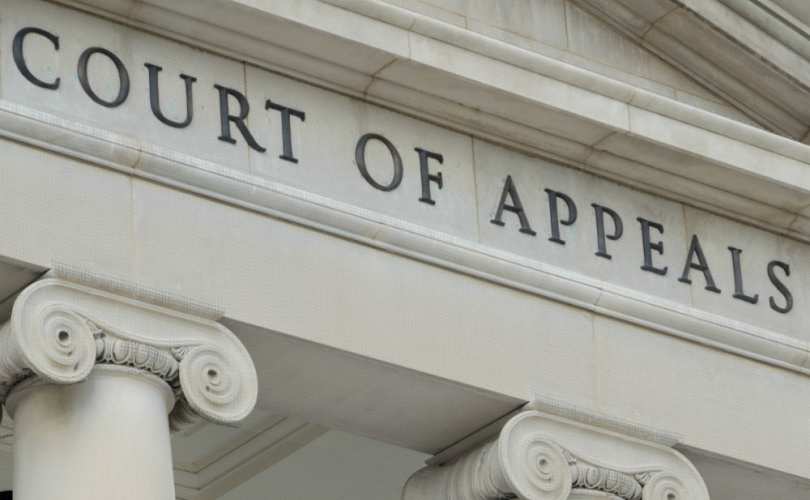Direct Appeals And Permissive Appeals: Involuntary Deportation Of Appellant
People v. Harrison
2016 NY Slip Op -3457
New York Court of Appeals
Decided: May 5th, 2016
The Appellate Division may not dismiss a direct appeal when the appellant is involuntarily deported, but retains the discretion to do so in permissive appeals.
Issue: Whether the Appellate Division has abused its discretion in dismissing a permissive appeal due to the involuntary deportations of the defendant.
Holding: The Court of Appeals held that the court did not abuse its discretion when it dismissed defendant’s permissive appeal. A defendant has no such fundamental right or basic entitlement to appeal where the defendant must seek permission to appeal to the intermediate appellate court pursuant to CPL 450.15. The Court of Appeals made the important distinction between direct appeals and permissive appeals. It held that the Appellate Division can retain their discretionary authority to dismiss permissive appeals, but not direct appeals where the defendant-appellant was involuntarily deported.
The Court of Appeals made the important distinction between direct appeals and permissive appeals. It held that the Appellate Division can retain their discretionary authority to dismiss permissive appeals, but not direct appeals where the defendant-appellant was involuntarily deported.
Facts: Andre Harrison, a citizen of Jamaica, was convicted, upon his plea of guilty, of attempted criminal possession of a weapon in the second degree. After serving his sentence, he was transferred into the custody of U.S. Immigration and Customs Enforcement (ICE). While in ICE custody, Harrison moved pursuant to CPL 440.10 to vacate the judgment, alleging, among other things, that his attorney gave him erroneous advice about the immigration consequences of his guilty plea. Supreme Court denied Harrison’s motion without a hearing. Harrison sought leave to appeal to the Appellate Division pursuant to CPL 460.15, and the court granted his application. While Harrison’s permissive appeal was pending in the Appellate Division, he was deported. The People moved to dismiss the appeal on the ground that Harrison was no longer available to obey the mandate of the court.
The Appellate Division granted the People’s motion to dismiss Harrison’s appeal, 115 AD3d 980 [2d Dept 2014], distinguishing Ventura on two grounds:
First, the court noted that in Ventura, the defendants had raised issues that would result in either an affirmance or outright dismissal of the convictions, neither of which would require the defendants’ further legal participation, whereas if Harrison were successful on appeal, his further legal participation would be required (id. at 982).
Second, the Appellate Division reasoned that in Ventura, this Court considered the dismissal of two direct appeals, but Harrison was appealing by permission (see id. at 981-982). A Judge of this Court granted Harrison leave to appeal, 24 NY3d 1084 [2014].
Legal Analysis: The Court of Appeals held that their holding in Ventura was based upon a criminal defendant’s fundamental right to a direct appeal granted by CPL 450.10. That statute has no application, however, in the context of permissive appeals. Rather, CPL 450.15 governs an appeal from an order denying a CPL 440.10 motion to vacate a judgment, and provides that a certificate granting leave to appeal must be obtained pursuant to CPL 460.15 (see?CPL 450.15 [1]).
In, Ventura, this Court spoke of a criminal defendant’s “absolute right,” statutory right,” “fundamental right,” and “basic entitlement” to appellate consideration of a direct appeal (Ventura, 17 NY3d at 679-682). A defendant has no such fundamental right or basic entitlement to appeal where the defendant must seek permission to appeal to the intermediate appellate court pursuant to CPL 450.15.
The Court reaffirmed in Ventura its own discretionary authority to dismiss permissive appeals pending before this Court on the ground that the defendant has been involuntarily deported. In People v Diaz, 7 NY3d 831 [2006] and other cases in which this Court had dismissed a pending appeal on the ground of involuntary deportation, the defendants had already received considered intermediate appellate review, in satisfaction of their statutory right, and that this Court, as a court of permissive appellate jurisdiction, had the discretion to dismiss those appeals, Ventura, 17 NY3d at 680.
Similarly, in Harrison, the Appellate Division was acting as a court of permissive appellate jurisdiction (id.). Where an intermediate appellate court has permissive jurisdiction over a pending appeal, the intermediate appellate court retains its discretion to dismiss the pending permissive appeal due to the defendant’s involuntary deportation.
The dissent conflates the right to a direct appeal with a discretionary appeal from an order denying a CPL 440.10 motion in analogizing this case to Ventura.
 As the Court of Appeals held in Ventura, Harrison had an absolute right to a direct appeal; he waived that right as part of his plea agreement. He later brought the present motion claiming ineffective assistance of counsel. Such claims are generally properly raised for the first time through CPL 440.10 motions. The dissent claims that in these circumstances, defendant has not had any appellate review of his claim, dissenting op., at 2. If that were the standard entitlement to one appeal, whether direct or collateral all such CPL 440.10 motions following a plea of guilty and waiver of direct appeal would require Appellate Division review. This is not the standard, however, inasmuch as CPL 450.15 (1) provides that appeals from orders denying CPL 440.10 motions are permissive.
As the Court of Appeals held in Ventura, Harrison had an absolute right to a direct appeal; he waived that right as part of his plea agreement. He later brought the present motion claiming ineffective assistance of counsel. Such claims are generally properly raised for the first time through CPL 440.10 motions. The dissent claims that in these circumstances, defendant has not had any appellate review of his claim, dissenting op., at 2. If that were the standard entitlement to one appeal, whether direct or collateral all such CPL 440.10 motions following a plea of guilty and waiver of direct appeal would require Appellate Division review. This is not the standard, however, inasmuch as CPL 450.15 (1) provides that appeals from orders denying CPL 440.10 motions are permissive.
To say that an abuse of discretion occurred because the Appellate Division had already accepted the appeal contradicts the reasoning of the decision in Diaz. There, as the Appellate Division did here, this Court permissively granted leave to appeal, People v Diaz, 5 NY3d 852 [2005]. Nearly one year later, the Court exercised its discretion and dismissed the appeal, concluding that the defendant’s involuntary deportation in the interim presented a situation analogous to that of mootness, Diaz, 7 NY3d at 832. The Appellate Division had similar discretion in this case.
The holding of Ventura does not compel the Court to limit the Appellate Division’s discretion such that the Appellate Division may not dismiss a pending permissive appeal based upon the perceived inability to obey the mandate of the court dissenting op., at 3, Ventura, 17 NY3d at 682. The holding in Ventura was based upon the right to a direct appeal, which could not be defeated based upon that concern. In Harrison, as in Diaz, there was no such right to appeal, and the Appellate Division retained its discretion to dismiss the appeal.
The Court of Appeals held, intermediate appellate court’s exercise of that discretion remains reviewable by this Court for abuse of discretion as a matter of law. There are circumstances in Harrison that would have supported the Appellate Division’s retention of the appeal, including that Harrison was raising a contention that could only be raised by way of a CPL 440.10 motion, and the People did not dispute that Harrison had been deported because of the conviction he was challenging in that motion. Nevertheless, unlike the Appellate Division, which may substitute its own discretion for that of the nisi prius court even absent an abuse of discretion, this Court has no power to substitute its own discretionary judgment for that of the Appellate Division, People v Guay, 18 NY3d 16, 22 [2011].
The Court held that it might reverse the discretionary determination of the Appellate Division only if its exercise of discretion was so arbitrary or unreasonable as to constitute an abuse of discretion as a matter of law (see NY Const, art VI, 3 [a]). Here, The Court can not conclude that the Appellate Division abused its discretion as a matter of law in dismissing Harrison’s pending permissive appeal due to his involuntary deportation.
Accordingly, in Harrison, the order of the Appellate Division should be affirmed.
